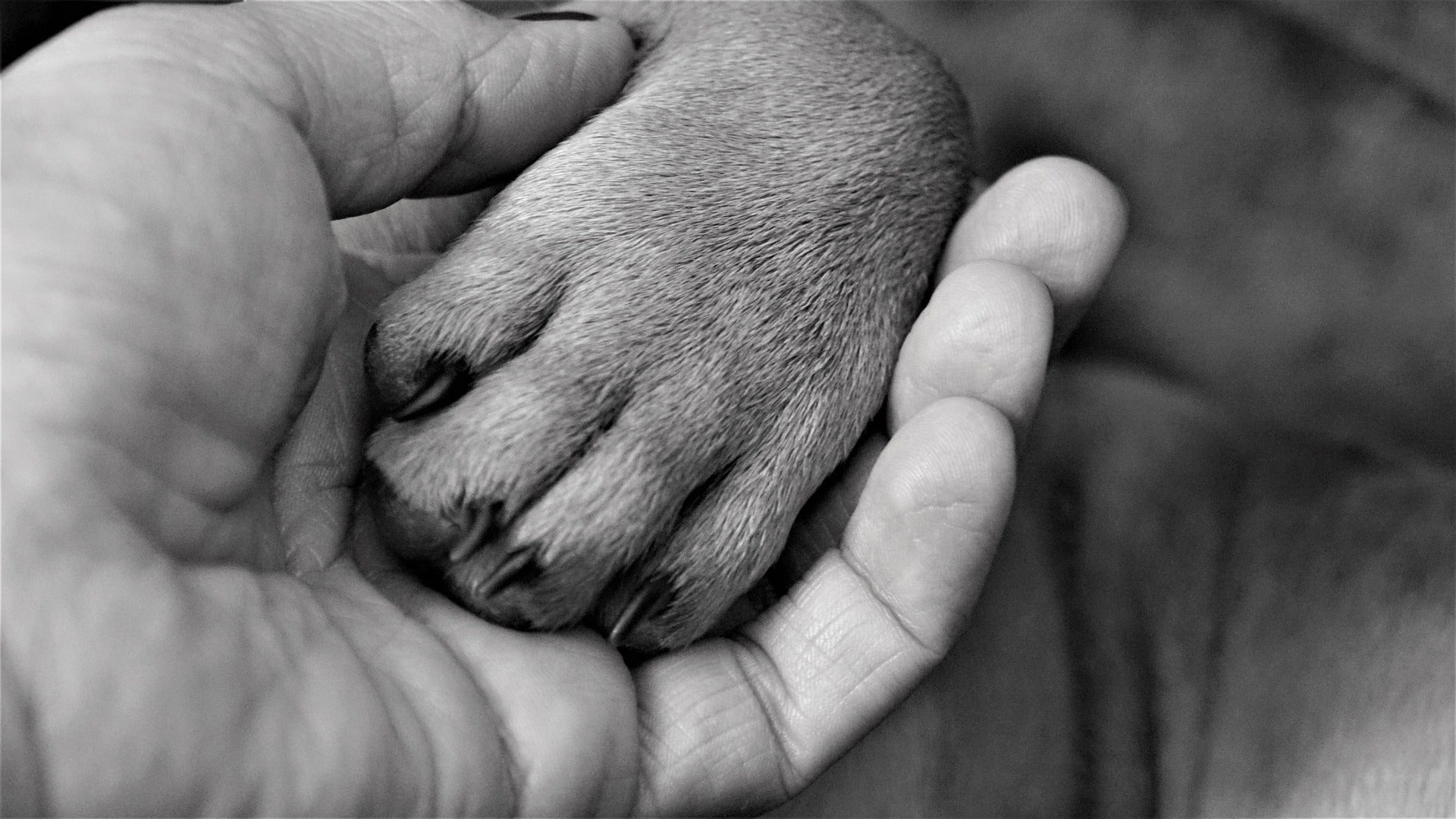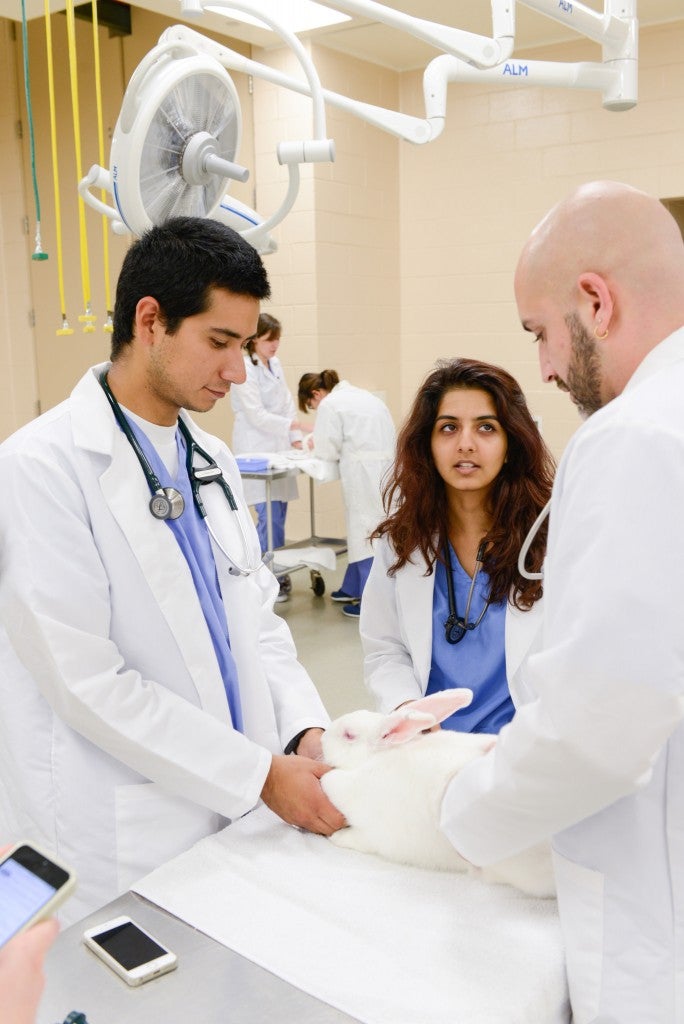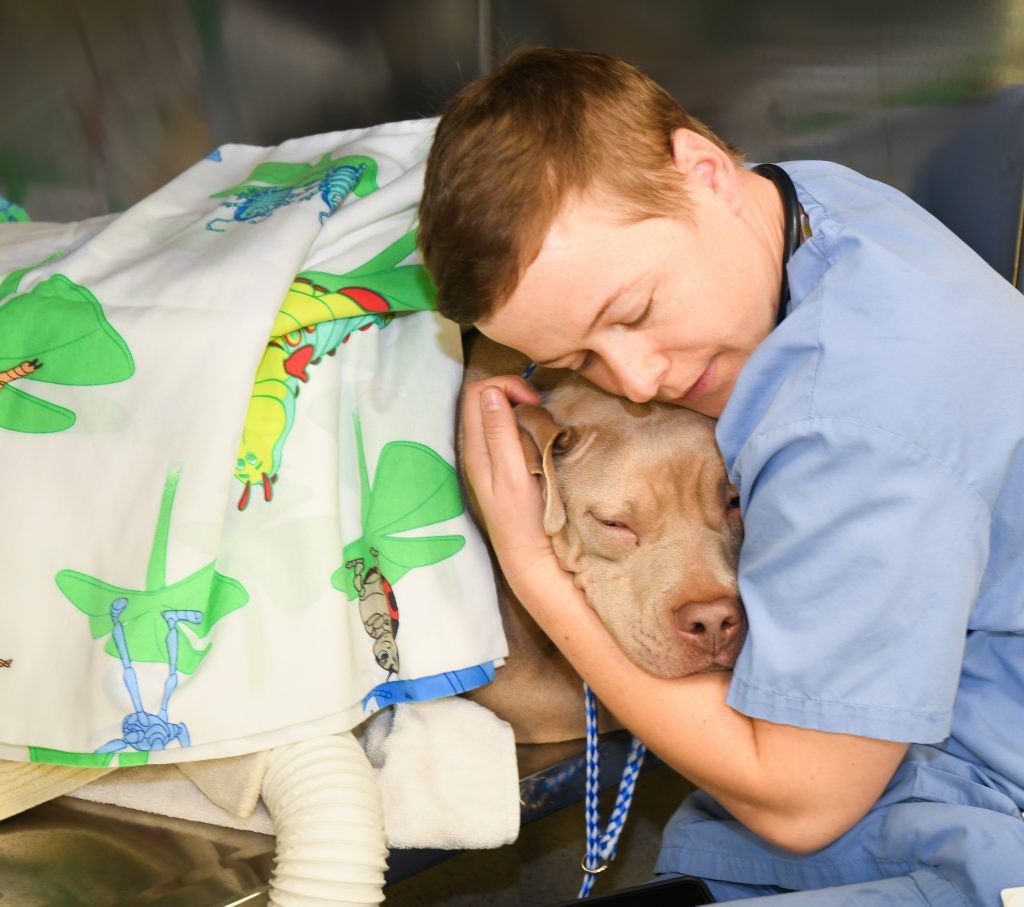“There are many trials that seem hard to bear at first which prove true blessings later when we see of what false materials they were first composed.” — Stephen Vincent Benet
 I distinctly remember the first time that I euthanized a client’s dog. All veterinarians must face this daunting moment in their career, to take the life of an animal we are trained to save from pain and suffering. In my case, I was an associate veterinarian in private practice only months after graduating with my DVM degree. A client’s dog was suffering from a fatal condition and after a prolonged struggle, the owner had decided to end her pet’s pain. She also requested that she hold her beloved pet during the procedure. I froze for an instant upon hearing her wish, adding to my anxiety and guilt. In that moment, the exam room became very small and I felt the ceiling lights intensely across the back of my neck, now moist with sweat. My hands and fingers trembled and seem to betray me as I aspirated the blue-green euthanasia solution into the syringe. The dog calmly watched me with trusting eyes as the owner wrapped her arms around his neck and chest, softly sobbing. Fortunately, the procedure was successful and the dog eased toward death with a final exhale. The memories and images from that moment have followed me throughout my life.
I distinctly remember the first time that I euthanized a client’s dog. All veterinarians must face this daunting moment in their career, to take the life of an animal we are trained to save from pain and suffering. In my case, I was an associate veterinarian in private practice only months after graduating with my DVM degree. A client’s dog was suffering from a fatal condition and after a prolonged struggle, the owner had decided to end her pet’s pain. She also requested that she hold her beloved pet during the procedure. I froze for an instant upon hearing her wish, adding to my anxiety and guilt. In that moment, the exam room became very small and I felt the ceiling lights intensely across the back of my neck, now moist with sweat. My hands and fingers trembled and seem to betray me as I aspirated the blue-green euthanasia solution into the syringe. The dog calmly watched me with trusting eyes as the owner wrapped her arms around his neck and chest, softly sobbing. Fortunately, the procedure was successful and the dog eased toward death with a final exhale. The memories and images from that moment have followed me throughout my life.
Because veterinarians face unique factors in the course of their training and careers, they require knowledge and life skills to help them face the moments of compassion exhaustion, mental stress, and moral conflict that they will enviably face. It is for these reasons that our school has focused extensive efforts to help support our students not only in the technical skills they will need, but also on skills to help them understand themselves and to navigate the stress of veterinary practice.
We greatly value the importance of mental health and wellness of our students. Our mental health counselors are dedicated to providing quality, confidential care for our students to help foster their personal and professional success. We have hired a professional psychologist in our veterinary hospital to help our clients deal with the stress of euthanasia and serve as a resource for our faculty, residents and students. Our wellness room provides a safe and comfortable space for our students to rest and de-stress, practice mindfulness or meditate. A number of wellness initiatives in collaboration with our students include seminar speakers, physical activities, and social outings bringing a sense of caring for our community. Through our “Each Aggie Matters” program we share our collective stories and in turn find strength in helping each other.
 At a national level, the recognition of mental health and wellness has resulted in multiple programs from summits to regional conferences designed to share best practices in support and training of students. This year’s AVMA Wellness Summit will bring together veterinary practitioners and team members, students, educators, and mental health professionals, to focus on what actions we all are taking to foster inclusive academic and work environments that promote individual, team, practice, and organizational wellbeing. Our profession has recognized the importance of mental health and wellness and must continue these efforts to help the next generation of veterinarians understand signs of mental stress and to seek appropriate ways to find help when their mental wellness is suffering. It is our moral duty to turn our compassion inward in dark times and understand that we are not perfect, but have the resilience to learn from our setbacks and that we are not alone in our career journey.
At a national level, the recognition of mental health and wellness has resulted in multiple programs from summits to regional conferences designed to share best practices in support and training of students. This year’s AVMA Wellness Summit will bring together veterinary practitioners and team members, students, educators, and mental health professionals, to focus on what actions we all are taking to foster inclusive academic and work environments that promote individual, team, practice, and organizational wellbeing. Our profession has recognized the importance of mental health and wellness and must continue these efforts to help the next generation of veterinarians understand signs of mental stress and to seek appropriate ways to find help when their mental wellness is suffering. It is our moral duty to turn our compassion inward in dark times and understand that we are not perfect, but have the resilience to learn from our setbacks and that we are not alone in our career journey.

